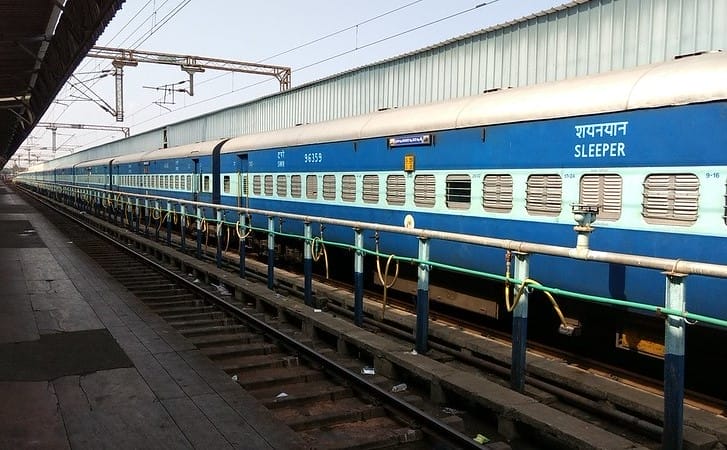Last month, news reports emerged of ticketed passengers stranded at Chennai Central railway station. They carried bonafide tickets for seats on a train bound for Howrah, but discovered that unauthorised travellers had occupied their coaches; it is said that people began to board the train even as the railcars were entering the platform so that the sleeper coaches were full by the time they made a stop at the station.
According to a report in The Hindu, ticketless passengers had not only overrun the reserved coaches but also blocked walkways with their luggage, making it impossible for those who had paid the fare to enter. The TTE (Travelling Ticket Examiner) and other railway staff had been unable to assist at the time, though a Southern Railway spokesperson later told the media that RPF (Railway Protection Force) and Government Railway Police were available to deter unauthorised entry into reserved coaches.
Read more: Bringing the Tejas Express train to Tambaram
Here is what the spokesperson said — “We have not received any complaint from passengers on the issue so far. Had someone flagged the issue, the RPF personnel would have certainly assisted them in boarding the train.” It is to be noted that the Southern Railways soon announced a special unreserved train from Chennai to Santragachi junction at Howrah to address the rush. The service began on June 13.
The above statement from the Southern Railways was surprising to read. There have been multiple passenger complaints and news reports about overcrowding in trains, and the latest mishap at Chennai Central is hardly an outlier.
Overcrowding in trains a persistent problem
Earlier in May this year, the Chennai-Thiruvananthapuram Mail attracted dubious publicity with news of a large group of unreserved and waitlisted travellers occupying a reserved coach; it was reported that the TTE had tried to evict them in vain, and that RPF personnel were not around. Last November, social media was all a-twitter when a Chennai student posted a video of a shockingly congested sleeper coach on a train bound for Andhra Pradesh; his seat, he said, had been occupied by ticketless passengers and many pieces of baggage.
A 2023 piece in The Times of India avers that overcrowding in reserved coaches is a persistent problem, and that trains such as the Tamil Nadu Express, Grand Trunk Express and those bound for Andhra Pradesh and West Bengal are the worst affected. TTEs appear to face difficulties in tackling the problem; not only do they struggle to control the ticketless crowd, but – according to media reports – are in danger of injury in some cases. Overcrowding in trains is a notorious problem, one that authorities cannot deny knowledge of. What is unknown is the Railways’ strategy to tackle it – there is a punitive fine for ticketless travel, but the fact that it does not seem to be a deterrent shows that it isn’t really a solution.
High demand for more trains

The issue is quite straightforward. There is a great and rapidly growing demand for accommodation on trains, especially in Sleeper and General Class coaches; and when unreserved coaches are packed to the brim, people spill over to reserved coaches to travel.
Read more: Chennai Metro commuters left in the dark about emergency medical facilities at stations
The solution, then, seems rather obvious — add more Sleeper and General Class coaches on trains in high demand, and more trains on routes in high demand. Demand spikes in peak travel seasons like public holidays such as Diwali, or summer holidays can be anticipated, and met with special trains such as the recent service from Chennai Central to Santragachi junction.
Nothing is preventing authorities from planning and announcing these well in advance. A proportionate increase in railway staff must accompany a planned increase in services — as it is, reports suggest that there aren’t enough TTEs and RPF personnel for the existing trains.
It is reported that Railway Minister Ashwini Vaishnaw is exhorting railway officials to take steps to address the crisis. The attention is long overdue, given that passenger safety is at risk for the ticketed and ticketless alike; surely, this is an agenda item that deserves priority alongside much-touted plans for new superfast express trains, bullet trains and the like.
[This article first appeared in Madras Musings, Vol. 34 No. 5, June 16-30, 2024, and has been republished with permission. The original article may be read here.]